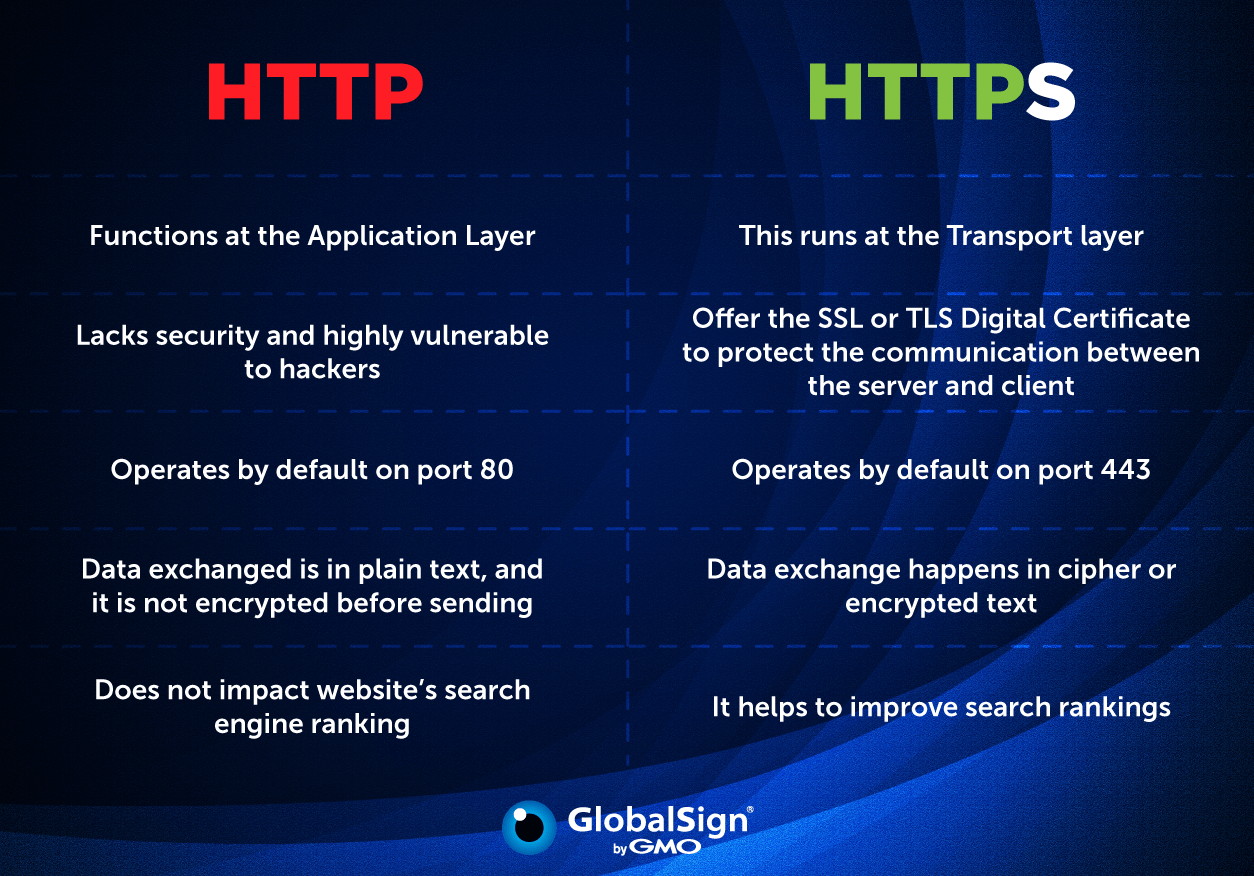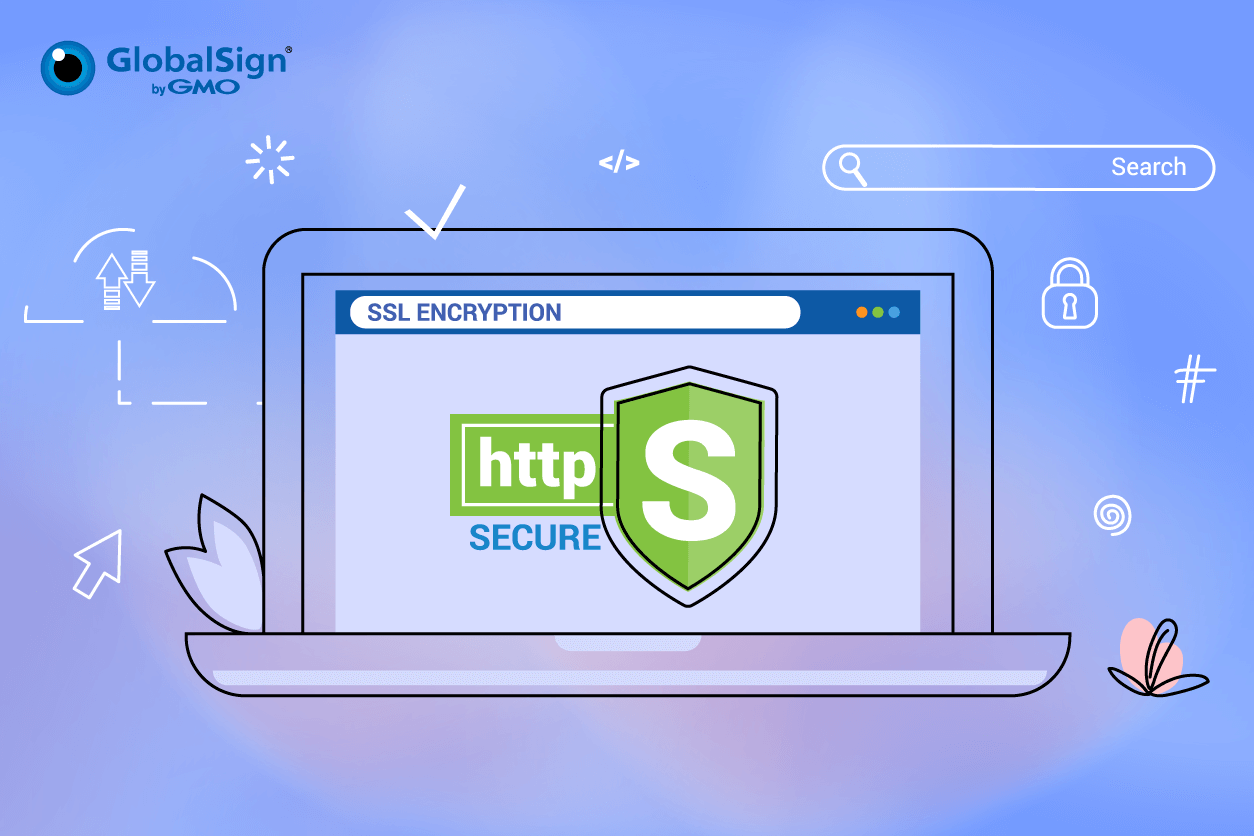Website security can be a complex topic in an ever-evolving internet landscape. While the importance of website security is undisputed, protecting against online threats is continuously growing more challenging each day. From thwarting web attacks to dealing with limitations in skills and resources, IT security departments face serious challenges when trying to secure the website. This guide provides a clear framework for website owners on how to mitigate risk using SSL Certificates. Here we will explain the difference between HTTP and HTTPS and how using an SSL Certificate can benefit your organization.
HTTP
HTTP, also called Hypertext Transfer Protocol, is a protocol—or a defined order and syntax for presenting information—used for transmitting data over a network. Most information sent over the Internet, including website content and API calls, uses the HTTP protocol.
There are two main kinds of HTTP messages: requests and responses. A user's browser generates HTTP requests as the user interacts with web properties. For instance, if a user clicks on a hyperlink, the browser will send a series of "HTTP GET" requests for that web page's content. These HTTP requests go to either an origin server or a proxy caching server, and that server generates an HTTP response. Thus, HTTP responses are the answers to HTTP requests.
HTTP requests and responses are communicated across the regular connections in 'plain text,' which can be monitored by anyone hacking over the connection between the browser and the website. This is a significant issue for organizations that submit sensitive data via a website or a web application. This confidential data could be a password, a credit card number, or any other data typed into a form. Essentially, a hacker can capture the content sent in the request or the response and know precisely what information someone is asking for, sending, or receiving, and even manipulate the communication as per their convenience.
HTTPS
HTTPS or HyperText Transfer Protocol Secure is the secured version of HTTP. It is the protocol over which data is transferred between your browser and the website to that you are connected. At the end of HTTPS, the' S' stands for ‘Secure.’ It implies all data transfer or any other communication between your browser and the website is encrypted. HTTPS is often used to safeguard confidential online transactions like internet banking and online shopping order forms.
The SSL Certificate is initially sent to your browser when you request an HTTPS connection to a webpage. This certificate holds a public key that begins the secure session on the webpage. Your browser and the website initiate the ‘SSL handshake’ based on this initial exchange.
When a trusted SSL Digital Certificate is used during an HTTPS connection, users will see a padlock icon in the browser address bar. When a Validation Certificate is installed on a website, the address bar will turn green, and with an HTTPS connection, all communications are securely encrypted before transferring to another browser.

HTTP vs HTTPS
Certainly, HTTPS should always be preferred over HTTP. While there could be some performance and speed boosts hurdles that may arise using HTTPS; however, these limited trade-offs are simply not worth the increased vulnerability of using an insecure internet protocol. A standard HTTP protocol does not encrypt connections which means that the content transferred through an HTTP request or response is visible to anyone monitoring the connection, including cybercriminals.
Using a standard HTTP generally poses minimal issues if the text only contains general information, such as to load a public web page. However, using unencrypted HTTP can pose serious security risks if it has sensitive data like usernames, passwords, or credit card details. Thus, no business should expose itself to a data breach, as adopting HTTPS may significantly reduce the odds of enduring such a breach.
CONCLUSION
One of the most critical components of online business is creating a trusted environment where potential customers feel confident in making purchases. GlobalSign’s SSL Digital Certificates create a foundation of trust by establishing a secure connection. We are trusted across the globe to secure billions of digital interactions every day. Connect with us today.







